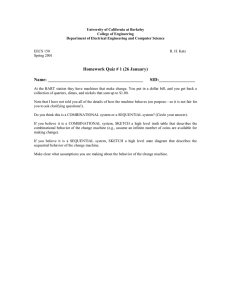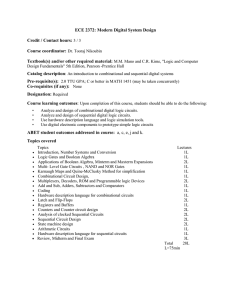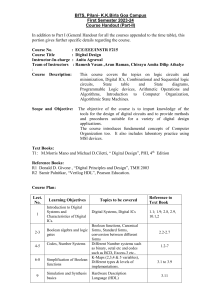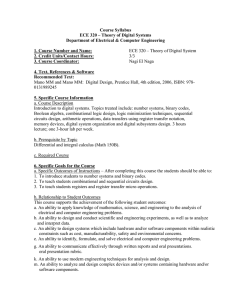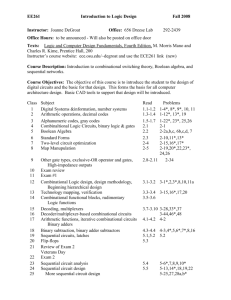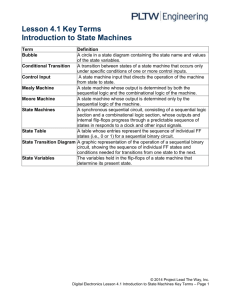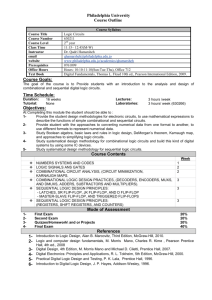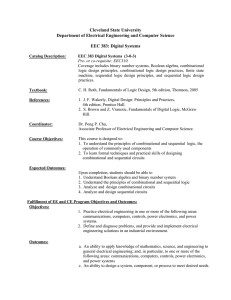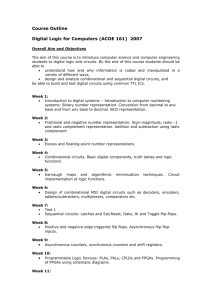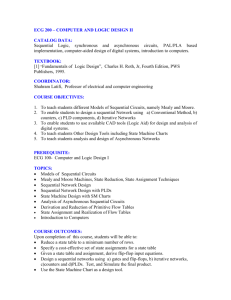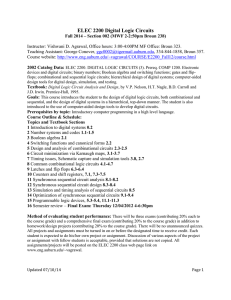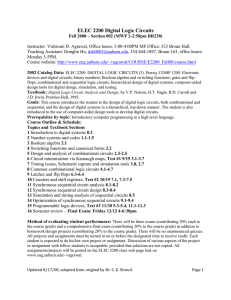Course Syllabus
advertisement
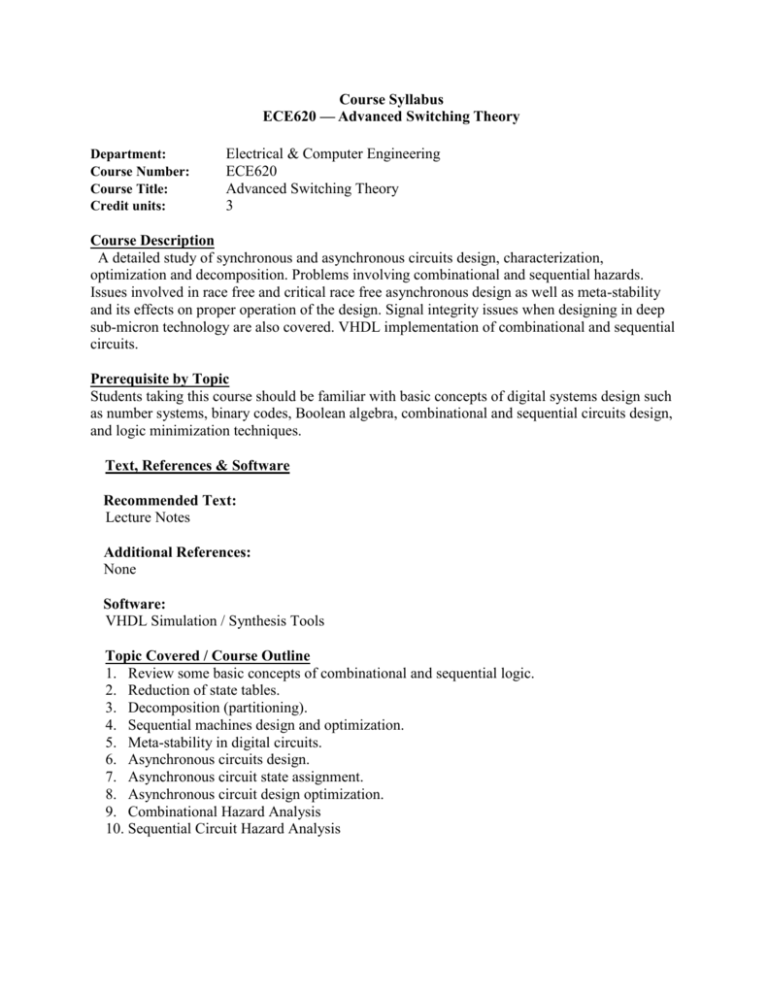
Course Syllabus ECE620 — Advanced Switching Theory Department: Course Number: Course Title: Credit units: Electrical & Computer Engineering ECE620 Advanced Switching Theory 3 Course Description A detailed study of synchronous and asynchronous circuits design, characterization, optimization and decomposition. Problems involving combinational and sequential hazards. Issues involved in race free and critical race free asynchronous design as well as meta-stability and its effects on proper operation of the design. Signal integrity issues when designing in deep sub-micron technology are also covered. VHDL implementation of combinational and sequential circuits. Prerequisite by Topic Students taking this course should be familiar with basic concepts of digital systems design such as number systems, binary codes, Boolean algebra, combinational and sequential circuits design, and logic minimization techniques. Text, References & Software Recommended Text: Lecture Notes Additional References: None Software: VHDL Simulation / Synthesis Tools Topic Covered / Course Outline 1. Review some basic concepts of combinational and sequential logic. 2. Reduction of state tables. 3. Decomposition (partitioning). 4. Sequential machines design and optimization. 5. Meta-stability in digital circuits. 6. Asynchronous circuits design. 7. Asynchronous circuit state assignment. 8. Asynchronous circuit design optimization. 9. Combinational Hazard Analysis 10. Sequential Circuit Hazard Analysis Relationship to Program Outcomes This supports the achievement of the following outcomes: a) Ability to apply knowledge of advanced principles to the analysis of electrical and computer engineering problems. b) Ability to apply knowledge of advanced techniques to the design of electrical and computer engineering systems. c) Ability to apply the appropriate industry practices, emerging technologies, state-of-the-art design techniques, software tools, and research methods of solving electrical and computer engineering problems. d) Ability to use the appropriate state-of-the-art engineering references and resources, including IEEE research journals and industry publications, needed to find the best solutions to electrical and computer engineering problems. e) Ability to communicate clearly and use the appropriate medium, including written, oral, and electronic methods. f) Ability to maintain life-long learning and continue to be motivated to learn new subject. g) Ability to learn new subjects that are required to solve problems in industry without being dependent on a classroom environment. Prepared by: Ramin Roosta November 2002
